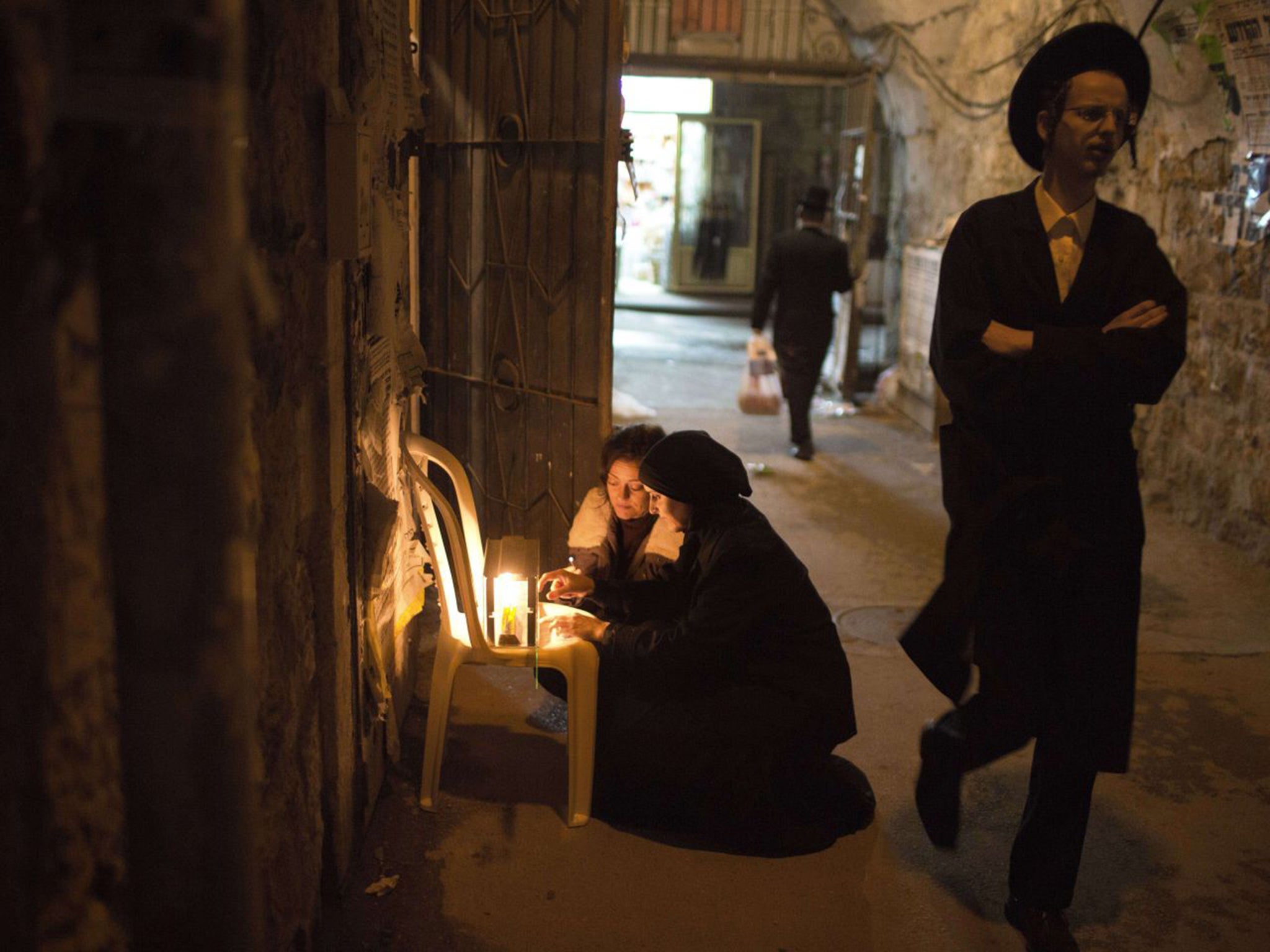Israel elections: Women confront final taboo by calling for shake-up of male-dominated Knesset
In Israel’s ultra-Orthodox communities, women are expected to earn a living as well as raising a family – without any say in the country’s government. Now one group wants to change that, reports Ben Lynfield

The Israeli general election in March has spawned a battle for gender equality in an unlikely place: Israel’s traditional and male-dominated ultra-Orthodox community, where a group of women is pressing demands for representation in the Knesset.
“The taboo is based on things that have no basis in reality today,” says Esty Shushan, head of the “No voice, no vote” group that is calling for a boycott of ultra-Orthodox parties that do not place women on their lists for national elections.
The Israeli parliament, or Knesset, is elected via the party list system, and anyone not nominated by a party cannot serve as a member of the Knesset.
Noting that in recent years ultra-Orthodox women have begun establishing themselves in the professional world including as lawyers, accountants and directors of charitable groups, she says that being an elected politician is just a natural extension of that trend. “The era when a woman sits at home is over,” says Ms Shushan.
The ultra-Orthodox strive to live in accordance with Jewish law as interpreted by their rabbis, who even guide them on who to vote for. The ultra-Orthodox are known in Hebrew as Haredim, a people who tremble in fear of the Lord and are anxious not to transgress the divine commandments. Haredi women are expected to raise the children and provide income while many men, by contrast, engage in full-time religious studies rather than work.
Women are expected to be modest not only in their appearance but their behaviour, something conservative men argue would be breached by high-profile political roles. “The feeling is that women on the Knesset lists is passt nicht,” says the ultra-Orthodox writer Chaim Walder, using a Yiddish phrase signifying something that just isn’t done. Women have at times played significant roles in secular Israeli parties. The former Foreign Minister Tzipi Livni has an outside chance of becoming prime minister after she struck a rotation agreement with Isaac Herzog, the Labour party leader who is challenging Prime Minister Benjamin Netanyahu.
Golda Meir served as Israeli Prime Minister between 1969 and 1974. The doveish Meretz party is headed by a woman, Zahava Gal-On, and female politicians make up about 20 per cent of the Knesset. The demand that ultra-Orthodox parties follow suit shows up the reality that, much as rabbis try to insulate their flocks, the Haredim are still subject to influence from society.
The boycott call is an audacious move, but, barring divine intervention, one that will not change the male monopoly in time for this election. However, the women have touched off unprecedented discussion in the ultra-Orthodox media and believe they have succeeded in placing their case on the agenda. Ms Shushan says the response in Haredi media has been mixed.
“Our goal is to raise awareness. The more it’s talked about, the more the social taboo is broken,” says Ms Shushan, a mother of four who runs her own advertising company. Asked what motivates her activism, she explained: “Women have to provide income and bear children yet they have no voice. No one represents us. A man’s way of looking at things is different.
“In the Knesset, there were no Haredi representatives at the sessions on the status of women. I am talking about sessions focusing on the problems of ultra-Orthodox women in employment, health and education. There were no ultra-Orthodox representatives there and this infuriates us.”
“No voice, no vote” comprises several dozen activists. Its Facebook page has garnered more than 5,000 likes. But in some cases, women are afraid to go public with their support for fear they or their families will be sanctioned.
“Women are afraid to raise their voice,” Ms Shushan says. “They tell me, ‘I can’t support you publicly; they will expel my children from school’. We want representation so that they can get used to seeing women like themselves in key positions.”
In what was seen as a limited concession, the ultra-Orthodox Shas party recently established a women’s advisory council co-chaired by Adina Bar-Shalom, the founder of a Haredi college for women and daughter of the late spiritual guide of Shas, Rabbi Ovadia Yosef. Ms Bar-Shalom had considered a run for parliament with the secular Kulanu party but decided to stick with Shas and wage her struggle within that group. Another party, United Torah Judaism, has been completely unyielding. “This is not discrimination; this is a matter of Jewish law and tradition,” a party spokesman said.
Ms Shushan says she and other activists consulted rabbis and that there is nothing in Jewish law against an ultra-Orthodox woman serving in the Knesset.
But Mr Walder, the Haredi writer, says the community sees scripture as pointing out that the way for women to contribute is by their efforts at home. He cites Psalm 45 which says: “The king’s daughter is all glorious within.”
“The Haredi community gives traditional roles for women and this is something that goes against being politically correct,” he says. “But politically correct is against religion. Women feel protected in our community. I am convinced that the overwhelming majority of women do not want this.”
Join our commenting forum
Join thought-provoking conversations, follow other Independent readers and see their replies
Comments
Bookmark popover
Removed from bookmarks